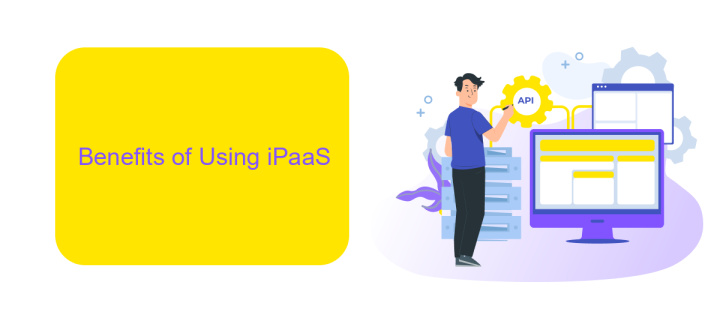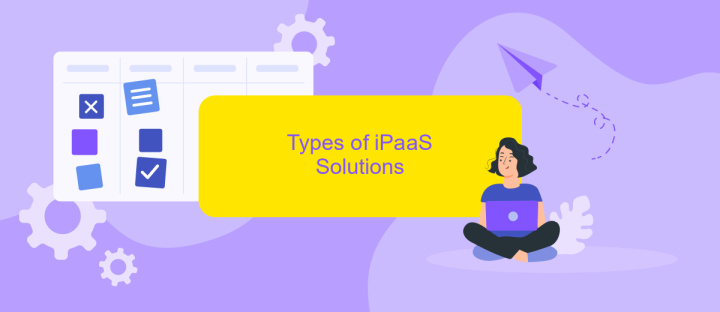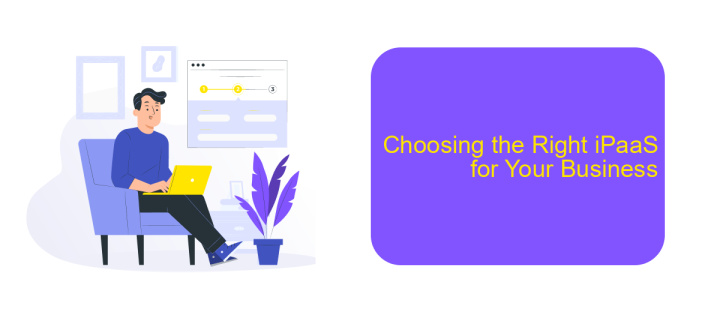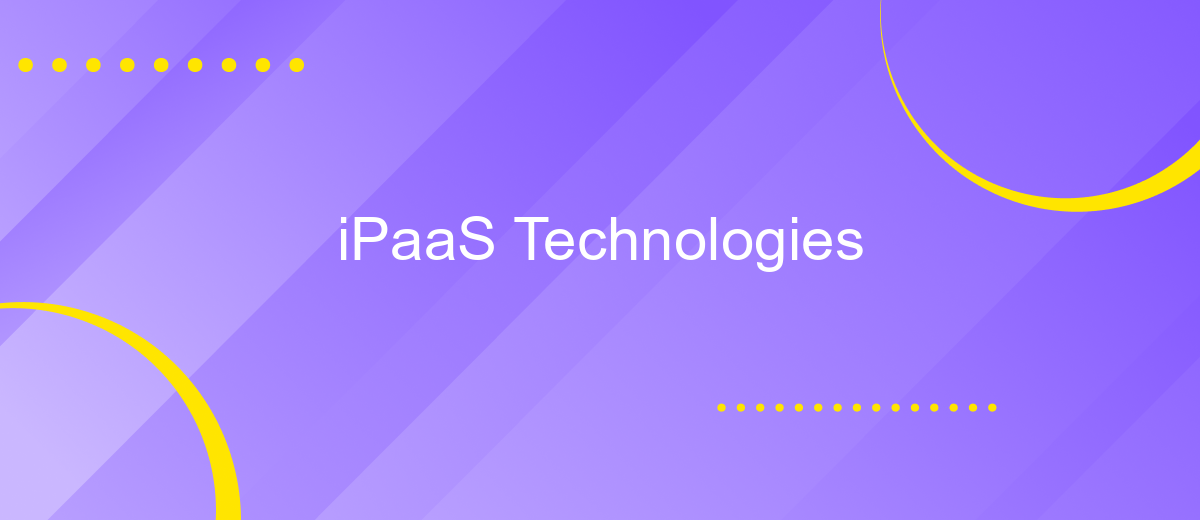iPaaS Technologies
In the rapidly evolving landscape of digital transformation, Integration Platform as a Service (iPaaS) technologies have emerged as a cornerstone for seamless data connectivity and process automation. By enabling businesses to integrate disparate systems and applications effortlessly, iPaaS solutions drive operational efficiency, enhance data accuracy, and foster innovation, making them indispensable for modern enterprises aiming to stay competitive.
Introduction to iPaaS Technologies
Integration Platform as a Service (iPaaS) technologies have revolutionized the way businesses handle data integration and workflow automation. By providing a cloud-based solution, iPaaS platforms enable seamless connectivity between disparate applications and services, streamlining operations and enhancing productivity.
- Automated data synchronization between various applications
- Real-time data processing and analytics
- Scalability to handle growing data volumes
- Enhanced security and compliance features
- Reduced IT overhead and operational costs
One notable example of an iPaaS solution is ApiX-Drive. This platform simplifies the integration process by offering a user-friendly interface and pre-built connectors for numerous applications. With ApiX-Drive, businesses can effortlessly automate workflows, ensuring that data flows smoothly across all systems. This not only saves time but also minimizes the risk of errors, making it an invaluable tool for modern enterprises.
Benefits of Using iPaaS

Integrating various applications and data sources can be a complex and time-consuming task. iPaaS (Integration Platform as a Service) simplifies this process by providing a unified platform for managing and automating integrations. This not only reduces the need for manual coding but also ensures that data flows seamlessly between different systems, enhancing overall operational efficiency. With iPaaS, businesses can quickly adapt to changing market demands and scale their operations without worrying about integration challenges.
One notable example of an iPaaS solution is ApiX-Drive, which offers a user-friendly interface for setting up and managing integrations. ApiX-Drive allows organizations to connect various applications, such as CRM systems, email marketing tools, and e-commerce platforms, without requiring extensive technical expertise. This capability enables businesses to streamline their workflows, improve data accuracy, and make more informed decisions. By leveraging iPaaS technologies like ApiX-Drive, companies can focus on their core activities while ensuring that their digital ecosystem remains cohesive and efficient.
Types of iPaaS Solutions

iPaaS (Integration Platform as a Service) solutions offer a variety of tools and services to streamline and automate the integration of disparate systems and data sources. These solutions cater to different business needs, providing flexibility and efficiency in managing integrations.
- Cloud-Based iPaaS: These solutions operate entirely in the cloud, offering scalability and ease of access. They are ideal for businesses looking to minimize on-premises infrastructure.
- Hybrid iPaaS: Combining both cloud and on-premises integration capabilities, hybrid iPaaS solutions are suitable for organizations that need to integrate cloud services with legacy systems.
- Enterprise iPaaS: Designed for large-scale operations, these solutions provide advanced features such as complex workflow automation, extensive security measures, and robust data governance.
- Specialized iPaaS: These solutions focus on specific industries or use cases, offering tailored functionalities to meet unique business requirements. For example, ApiX-Drive specializes in automating integrations between various web services and applications, simplifying the process for users.
Choosing the right type of iPaaS solution depends on your organization's specific needs, existing infrastructure, and long-term integration goals. Whether you need a cloud-based solution for its scalability or a specialized service like ApiX-Drive for its ease of use, iPaaS provides the tools necessary to enhance operational efficiency and data connectivity.
Choosing the Right iPaaS for Your Business

Choosing the right Integration Platform as a Service (iPaaS) for your business is crucial for seamless operations and efficient data management. The ideal iPaaS should align with your business requirements, offering flexibility, scalability, and robust integration capabilities.
Begin by assessing your current and future integration needs. Consider the types of applications and data sources you need to connect, as well as the volume of data and complexity of workflows. This will help you identify the essential features your iPaaS must have.
- Ease of Use: Look for a user-friendly interface that simplifies the integration process.
- Scalability: Ensure the platform can grow with your business.
- Security: Prioritize platforms with strong security measures to protect your data.
- Support and Documentation: Opt for services like ApiX-Drive that offer comprehensive support and detailed documentation.
Finally, consider the cost-effectiveness of the iPaaS. Evaluate the pricing models and ensure they fit within your budget while providing the necessary features and support. With careful consideration, you can select an iPaaS that enhances your business's integration capabilities and supports its growth.
Implementation and Best Practices for iPaaS
Implementing iPaaS (Integration Platform as a Service) requires a strategic approach to ensure seamless integration and optimal performance. Begin by identifying the specific business needs and integration goals. Choose an iPaaS solution that aligns with these requirements, ensuring it supports the necessary data formats, protocols, and systems. A phased implementation approach can help manage complexity and reduce risks. Start with a pilot project to validate the integration processes and tools, making adjustments as needed before scaling up.
Adopting best practices is crucial for successful iPaaS implementation. Ensure robust data governance and security measures are in place to protect sensitive information. Utilize monitoring and analytics tools to track performance and identify issues early. Services like ApiX-Drive can simplify the integration process by providing pre-built connectors and an intuitive interface, reducing the need for extensive coding. Regularly update and maintain integrations to adapt to evolving business needs and technological advancements. Training and support for staff are essential to maximize the benefits of iPaaS solutions.
FAQ
What is iPaaS?
How does iPaaS benefit businesses?
Can iPaaS be used by non-technical users?
What types of integrations can be achieved with iPaaS?
Is it possible to customize integrations with iPaaS?
Time is the most valuable resource in today's business realities. By eliminating the routine from work processes, you will get more opportunities to implement the most daring plans and ideas. Choose – you can continue to waste time, money and nerves on inefficient solutions, or you can use ApiX-Drive, automating work processes and achieving results with minimal investment of money, effort and human resources.

